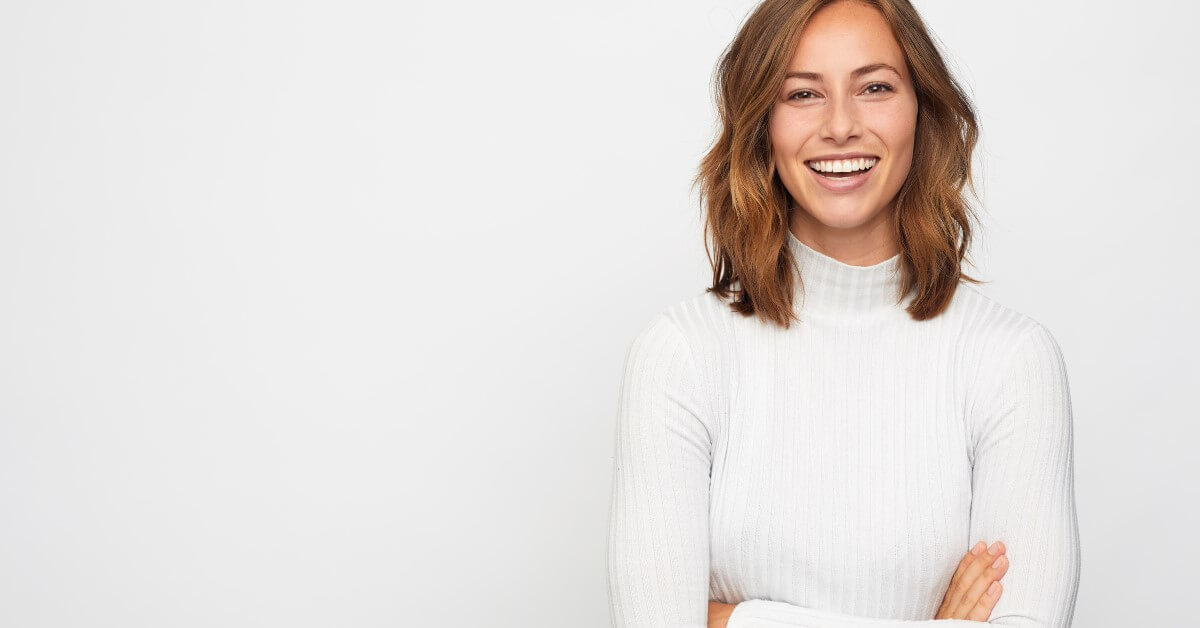Overview
Two processes in the body manage our sleep cycle: sleep-wake homeostasis and the circadian rhythm, or the 24-hour body clock.
● Sleep-wake homeostasis alerts our bodies when we need to sleep. [1] There is no universal quantity, and various people require different amounts at different phases of their life.[2]
● The circadian rhythm regulates drowsiness and wakefulness by using a set of brain cells that react to light and dark.[1]
Good sleep is essential to maintaining a healthy lifestyle, and here are five indicators that you are receiving enough of it.
1. Your Skin is Flawless and Radiant
There’s a link between sleep deprivation and stress and stress and acne; thus, there must be a link between sleep deprivation and acne.[6]
Meghan O’Brien, clinical instructor and medical doctor at Weill Cornell Medical Center, stated, “You add stress to your body when you miss hours of sleep, which can boost glucocorticoid production and contribute to breakouts.”[7]
Maybe beauty sleep isn’t a myth, as dark circles and blemishes are less visible when you get enough sleep.
2. Your Energy Levels are Stable
If you observe severe and frequent drops in energy accompanied by exhaustion, it might be a sign that you did not receive enough rest.
It is perfectly natural to take a nap to refill your energy, but desiring to nap multiple times a day or struggling to remain awake after a midday nap may be a warning sign.[5]
If you are undecided about sleep time, it is best to maintain naps between 10 and 30 minutes long for maximum vitality. You want them to be long enough to get some relaxation but not so long that you wake up tired. [2]
3. You are in a Good Mood
For most of us, shoddy sleep almost always results in a negative attitude. And there is a reason we joke about not wanting to talk to somebody before we have had our coffee.
Sleep deprivation, as well as adequate sleep, may significantly influence your mood.
Obtaining enough sleep can lead to less anxiety, a lower risk of depression, less stress, greater motivation, and a lower likelihood of having strong reactions to unpleasant experiences.[3]
You may be able to link your newfound optimism to getting enough sleep if you find you are feeling more cheerful, suffering less in the morning, and generally in a good mood.[3]
4. Waking up Without an Alarm Becomes Routine
We have all had the experience of waking up to the sound of the alarm, pushing the snooze button repeatedly, and then sliding out of bed half-tired in search of some coffee.
According to Patrick Fuller, a sleep expert and associate professor of neurology at Harvard Medical School, “if you woke up naturally without an alarm clock, rather than dragging yourself out of bed, then you have just had a decent nap.”[8]
It is an entirely different sensation when your body is adequately rested and you wake up on your own. If you wake up before your alarm sounds and do not feel tired, you probably slept enough the night before.[2]
5. You Maintain a Healthy Weight
You might wonder how you can maintain or even lose weight when your diet is not ideal, and you have skipped the gym a time or two (or ten) in the previous month. You might be able to attribute that to a good night’s sleep.
According to the National Sleep Foundation, on average, the fewer individuals sleep, the more they weigh, and the more likely they are to put on additional pounds over time.[4]
On the contrary, when we get enough sleep, our hormones perform correctly; insulin production is balanced, we may feel full, and our hunger is not erratic.[4]
References:
- Taylor, P. (2020, May 30). Nap Time. Retrieved September 10, 2020, from https://www.pewsocialtrends.org/2009/07/29/nap-time/
- Mander, B. A., Santhanam, S., Saletin, J. M., & Walker, M. P. (2011). Wake deterioration and sleep restoration of human learning. Current biology: CB, 21(5), R183–R184. https://doi.org/10.1016/j.cub.2011.01.019
- Cross, N., Terpening, Z., Rogers, N. L., Duffy, S. L., Hickie, I. B., Lewis, S. J., & Naismith, S. L. (2015). Napping in older people ‘at risk’ of dementia: relationships with depression, cognition, medical burden, and sleep quality. Journal of sleep research, 24(5), 494–502. https://doi.org/10.1111/jsr.12313
- Sharma, S., & Kavuru, M. (2010). Sleep and metabolism: an overview. International journal of endocrinology, 2010.
- Mantua, J., & Spencer, R. (2017). Exploring the nap paradox: are mid-day sleep bouts a friend or foe? Sleep medicine, 37, 88–97. https://doi.org/10.1016/j.sleep.2017.01.019
- Schrom, K. P., Ahsanuddin, S., Baechtold, M., Tripathi, R., Ramser, A., & Baron, E. (2019). Acne severity and sleep quality in adults. Clocks & Sleep, 1(4), 510-516.
- TodayShow. (2019, August 26). 15 reasons you’re waking up to breakouts – and how to fix them! TODAY.com. Retrieved November 7, 2022, from https://www.today.com/style/heres-what-causes-adult-acne-breakouts-how-fix-them-t26841
- Smith, H. (2018, April 27). 6 signs you’re getting enough sleep – even if you don’t think you are. Insider. Retrieved November 7, 2022, from https://www.insider.com/am-i-sleeping-enough-2018-4







